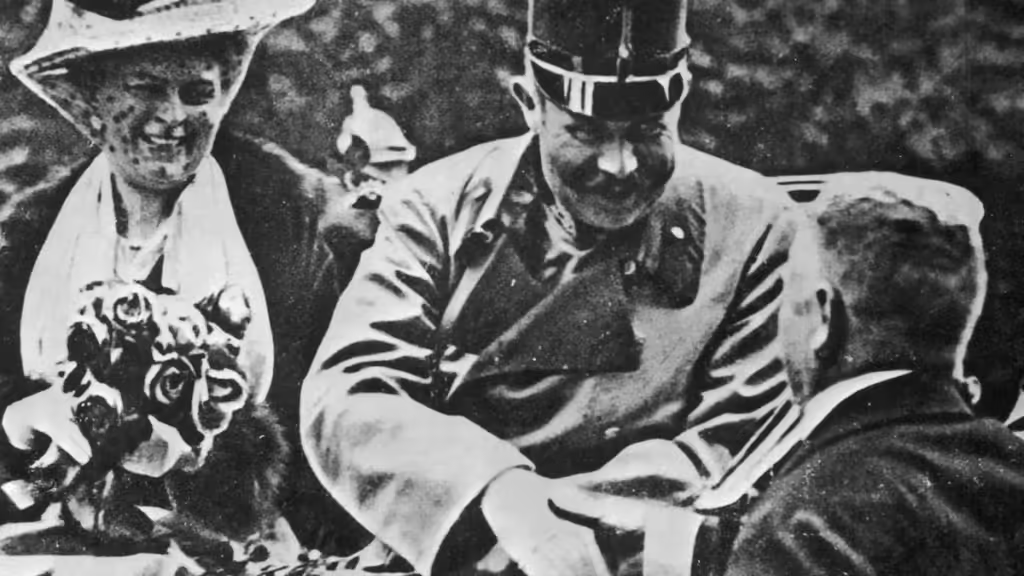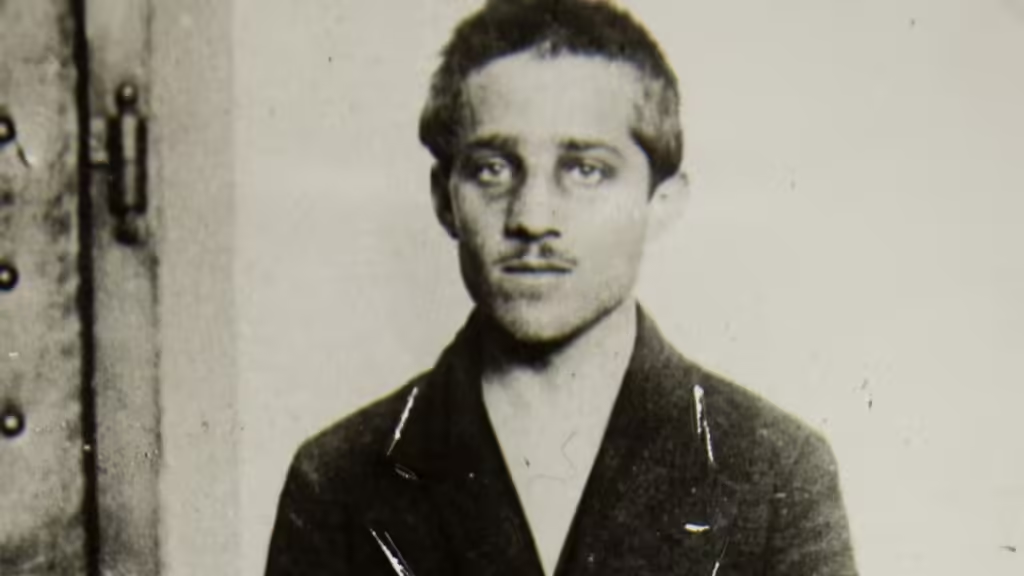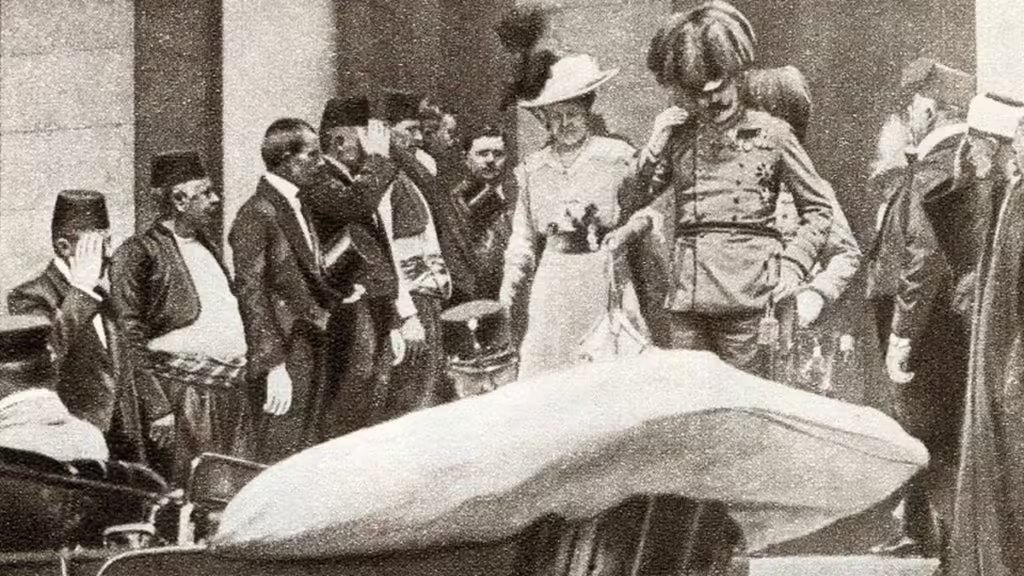Discover how the assassination of Archduke Franz Ferdinand, tied to Balkan nationalism, altered history. Learn about Gavrilo Princip’s biography and fun facts in history related to this world-changing event.
The assassination of Archduke Franz Ferdinand of Austria is often described as the match that lit the powder keg of World War I. On June 28, 1914, Gavrilo Princip, a Bosnian nationalist, shot the archduke and his wife Sophie in Sarajevo. This act, rooted in the volatile tensions of Balkan nationalism, had far-reaching consequences, reshaping the global political landscape and altering the course of history.
How did this single assassination lead to a conflict of such immense scale? Let’s explore the event in detail through five pivotal ways it impacted the world, delve into Gavrilo Princip’s biography, and uncover fun facts in history tied to this dramatic episode.
Table of Contents
1. A Flashpoint for World War I

Archduke Franz Ferdinand Assassination directly triggered a series of diplomatic escalations among Europe’s great powers. Austria-Hungary, believing Serbia was complicit in the attack, issued an ultimatum. When Serbia’s response fell short of full compliance, Austria-Hungary declared war, prompting alliances to activate:
- Germany allied with Austria-Hungary.
- Russia mobilized in defense of Serbia.
- France and the United Kingdom joined in, leading to a full-scale global conflict.
This chain reaction turned a localized event into a world war that lasted four years, claimed over 16 million lives, and forever altered geopolitical boundaries.
2. The Rise of Nationalism in the Balkans
Archduke Franz Ferdinand Assassination underscored the growing influence of nationalism in the Balkans. Gavrilo Princip and his co-conspirators were part of the Black Hand, a secret society committed to the unification of South Slavs under a single nation.
Their actions reflected the deep dissatisfaction of Slavic peoples living under Austro-Hungarian rule. The incident intensified nationalist movements, which eventually contributed to the creation of Yugoslavia after the war.
3. Gavrilo Princip’s Biography: The Man Behind the Trigger

Humble Beginnings
Gavrilo Princip was born on July 25, 1894, in Obljaj, Bosnia, a region then controlled by Austria-Hungary. He grew up in poverty, the son of a farmer, and was heavily influenced by the nationalist fervor spreading through the Balkans.
Joining the Black Hand
Princip became a member of the Black Hand while studying in Sarajevo. This group aimed to overthrow Austro-Hungarian rule and unite South Slavic territories. He was chosen to assassinate Franz Ferdinand, a decision that would etch his name into history.
After Archduke Franz Ferdinand Assassination
Princip was arrested immediately after the attack. At just 19 years old, he was too young for the death penalty under Austro-Hungarian law. Instead, he was sentenced to 20 years in prison, where he succumbed to tuberculosis in 1918.
4. A Redrawing of the World Map
Archduke Franz Ferdinand Assassination led to World War I, which dismantled empires and redrew international borders:
- The Austro-Hungarian and Ottoman Empires dissolved.
- The Treaty of Versailles imposed harsh terms on Germany, sowing seeds for World War II.
- New nations, including Yugoslavia, emerged, reshaping Europe’s political landscape.
These changes marked the end of imperial dominance in Europe and the rise of new ideologies, including communism and fascism.
5. Fun Facts in History About the Assassination

1. A Wrong Turn Changed History:
The archduke’s driver mistakenly turned onto a side street, bringing the car within range of Gavrilo Princip.
2. The Date Was Symbolic:
June 28, 1914, was the anniversary of the Battle of Kosovo, a significant date in Serbian history.
3. A Failed Bombing Attempt:
Earlier in the day, another assassin threw a bomb at Franz Ferdinand’s car, but it bounced off and exploded behind the motorcade.
4. Princip’s Gun Is on Display:
The pistol used in Archduke Franz Ferdinand Assassination is preserved at the Museum of Military History in Vienna.
5. A Catalyst, Not the Cause:
While Archduke Franz Ferdinand Assassination is often blamed for World War I, underlying tensions and alliances had been building for decades, making the war almost inevitable.
The Legacy of Balkan Nationalism and Global Conflict
The assassination of Franz Ferdinand was not merely an isolated act of violence but a symptom of the broader tensions in Europe. Balkan nationalism, fueled by historical grievances and dreams of independence, played a central role in shaping the 20th century.
This event reminds us of the unpredictable ways in which local actions can have global consequences. The story of Gavrilo Princip, the Black Hand, and the Franz Ferdinand assassination serves as a stark lesson in history about the power of ideas, the complexity of geopolitics, and the fragility of peace.
External Link: